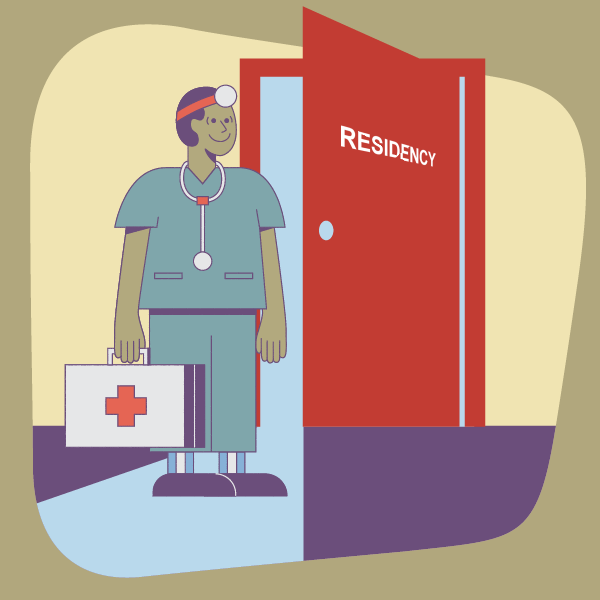
Infectious disease specialist RK Devlin, MD, FIDSA, offers her tips on how to navigate the locum tenens process for a smooth and successful assignment.
It comes as no surprise that many infectious disease docs currently feel burned out: they’re overburdened but undervalued, overwhelmed but underappreciated. Already stretched thin while practicing within a broken medical system, more providers in infectious diseases have reported symptoms of burnout over the last two years, exacerbated by the additional burdens of the COVID pandemic. Though this has forced some physicians to leave medicine entirely, another alternative is to consider locum tenens work.
For myself, practicing as an infectious disease locum provider has decreased the stresses that lead to burnout, while offering job satisfaction, worthy compensation, and an opportunity for travel.
Discovering a new way to practice medicine
Changing one’s career path is stressful, to be sure. Before making the transition from my permanent hospital employment to locum tenens, I did my due diligence. Were there enough options for work as a traveling infectious disease doc? Would I be uncomfortable traveling to new places or working in unfamiliar medical communities? Was I willing to leave a job with benefits to become a contractor without paid health insurance or other benefits? Could I make the numbers work from a financial and retirement perspective?
To address these concerns, I researched the practice of locums tenens online — there are tons of resources, blogs, and articles that offer facts, stats, and perspectives of other locum physicians. I ordered books published by locums providers that offered insight into their experiences. I reached out to other infectious disease providers. I reviewed the costs of health insurance and reassessed my budget. Ultimately, I felt satisfied that locum tenens was likely a good match for me, and in December of 2019, I gave notice at my permanent hospital position.
Finding a locum tenens agency
The first step after leaving my employment was to sign with a locums agency. There are many agencies to choose from, and it can be difficult to know which might serve you best. For me, the choice came down to three major questions:
1. Did the agency receive recommendations from other infectious disease consultants?
2. Was the agency large enough to offer a reasonable selection of infectious disease positions at any given time?
3. Could the agency adequately offer support for negotiations, travel arrangements, and troubleshooting?
Though many locums practitioners sign with multiple agencies to allow for a broader choice in assignments, I elected to contract with just one. So far, I’ve had no trouble finding enough work to keep me busy.
Find a recruiter who advocates for you
Within the locums agency, I was matched with a recruiter who handles providers in infectious diseases. They send me a list of assignment options, ensure the travel arrangements and work environment are well-planned and safe, and help coordinate the responsibilities of other departments within the agency (credentialing, travel, negotiations, for example). They’ll support you as you navigate the locum tenens process.
Locum tenens opportunities in infectious disease are highly variable in terms of location, expectations, and duration. So, the better your recruiter knows you and your practice preferences, the more help they can be when matching you with a job that will meet your expectations. Working with a recruiter who knows you and your preferences may be one of the biggest keys to success as a locum provider. You’ll find yourself on assignments that fit your personal and professional must-haves, and institutions will be grateful they have a provider who has the skill set that matches their needs.
Before you get started, ask yourself — and your recruiter — questions
It’s important to ask yourself what you want and then share your answers with your recruiter:
1. Do you prefer to work near home, or are you willing to travel for an assignment?
I like to explore opportunities across the country, but some infectious disease providers only accept locum assignments within commuting distance from home.
2. What patient responsibilities are you willing to cover, and which would you prefer not to include?
I love rounding on the inpatient infectious disease service and teaching students/residents, but I would prefer not to participate in outpatient clinics or infection control.
3. Are you willing to do overtime if the patient load is higher than you’d prefer?
At this point, I have no desire to work 14-hour days, even for generous overtime pay. I’d rather find an assignment with a manageable patient census and consult burden that gets me out of the hospital in time for dinner after a nicely productive day.
4. Will you be expected to take call overnight?
I’m not opposed to taking call if there is adequate compensation and hospitalist coverage — which means the infectious disease doc wouldn’t be the first called in the middle of the night.
5. How many days in a row, how often, and for what duration will you work?
I prefer to work up to seven days in a row, every two to three weeks, for three to six months at a time. If I work more than that, I start to feel as overburdened as I did in my permanent position.
6. What would you need to be paid to make the assignment worthwhile?
Infectious disease is an undercompensated specialty no matter how it is practiced, so take the time to run the numbers and negotiate for what you deserve. I take into consideration my personal costs for food and travel, the burden of time away from other paid work or family/friends, my health insurance and benefit expenses, and future retirement contributions.
Once you’ve found an assignment
If you find an infectious disease assignment of interest, your liaison will put your name and CV forward. If the hospital feels you’re a good fit, there may be a telephone or video interview before a formal commitment is made on each side. After both parties agree to the assignment conditions, the next step is paperwork (my least favorite part of locums). Each medical institution and state has their own credentialing or licensing process. Fortunately, your locums agency has departments that help with both, and it gets easier once your information is on file.
Preparing for your assignment
As you approach the dates of your assignment, you’ll receive your assignment details, including information about the institution, map and directions, a work itinerary, and contact numbers. The travel department at your locums agency will aid in the necessary arrangements — rental car, hotel, flights — to get you to and from your assignment, and your recruiter is always available if you think of something you need before your start date.
Most medical facilities offer a day or two of orientation before you start your clinical duties, which helps you get the lay of the land. This will give you time to troubleshoot any issues, such as badges that don’t work, electronic medical record login problems, or coding/billing questions. Starting the assignment with a curious and open mind leads to more offers of assistance from new colleagues. Completing the assignment as promised earns you respect and personal satisfaction. And, hopefully, the experience will leave you looking forward to your next locums gig.


